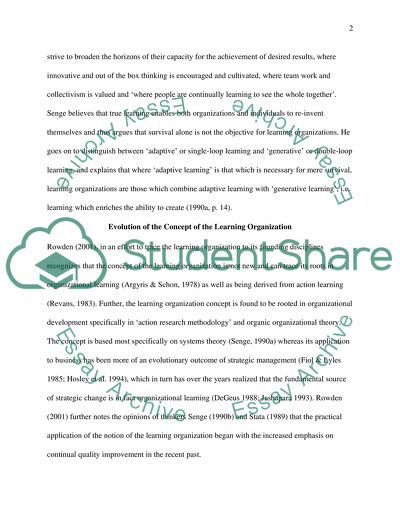Cite this document
(“The learning organization can never be achieved in reality Essay”, n.d.)
The learning organization can never be achieved in reality Essay. Retrieved from https://studentshare.org/education/1502337-the-learning-organization-can-never-be-achieved-in-reality
The learning organization can never be achieved in reality Essay. Retrieved from https://studentshare.org/education/1502337-the-learning-organization-can-never-be-achieved-in-reality
(The Learning Organization Can Never Be Achieved in Reality Essay)
The Learning Organization Can Never Be Achieved in Reality Essay. https://studentshare.org/education/1502337-the-learning-organization-can-never-be-achieved-in-reality.
The Learning Organization Can Never Be Achieved in Reality Essay. https://studentshare.org/education/1502337-the-learning-organization-can-never-be-achieved-in-reality.
“The Learning Organization Can Never Be Achieved in Reality Essay”, n.d. https://studentshare.org/education/1502337-the-learning-organization-can-never-be-achieved-in-reality.


